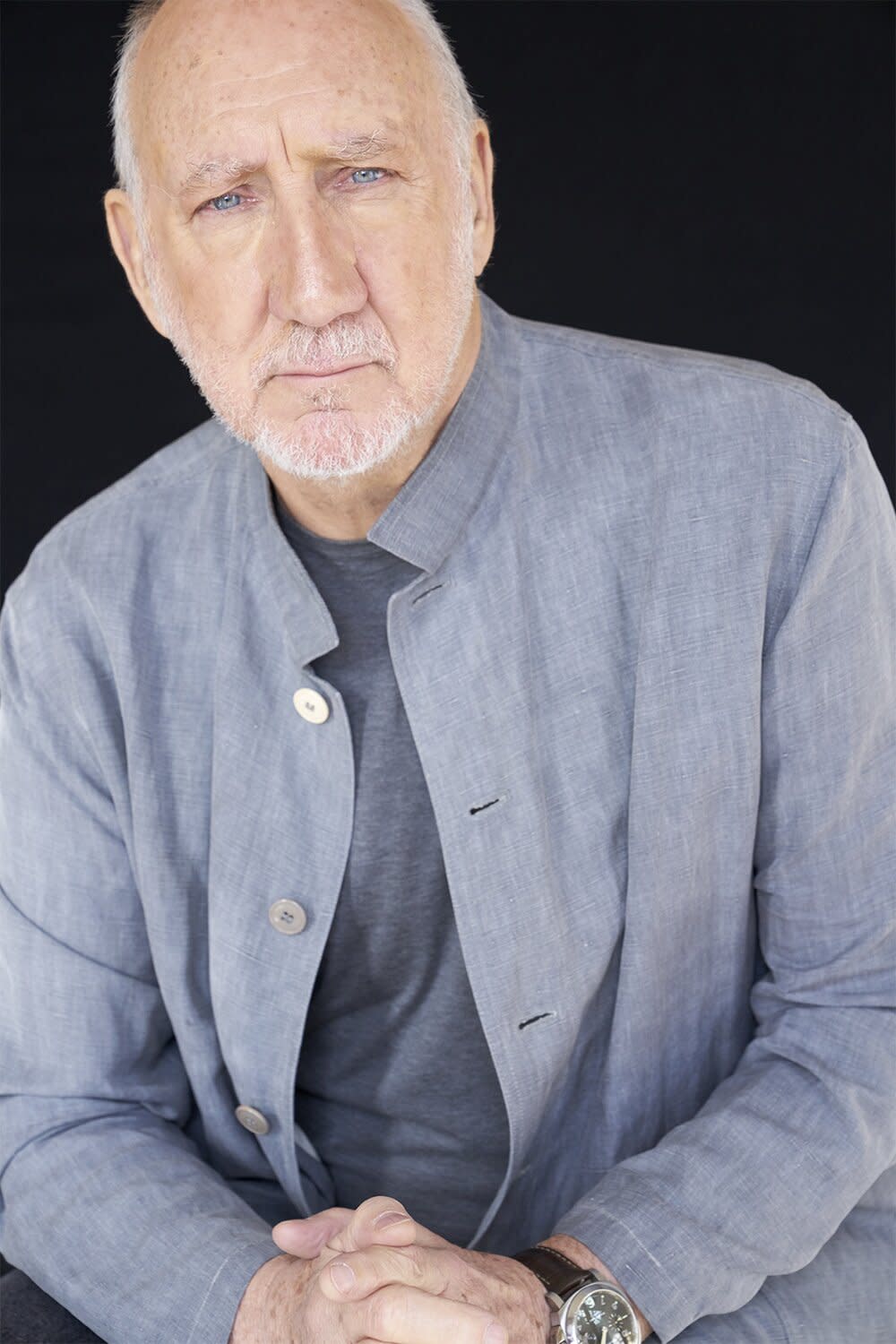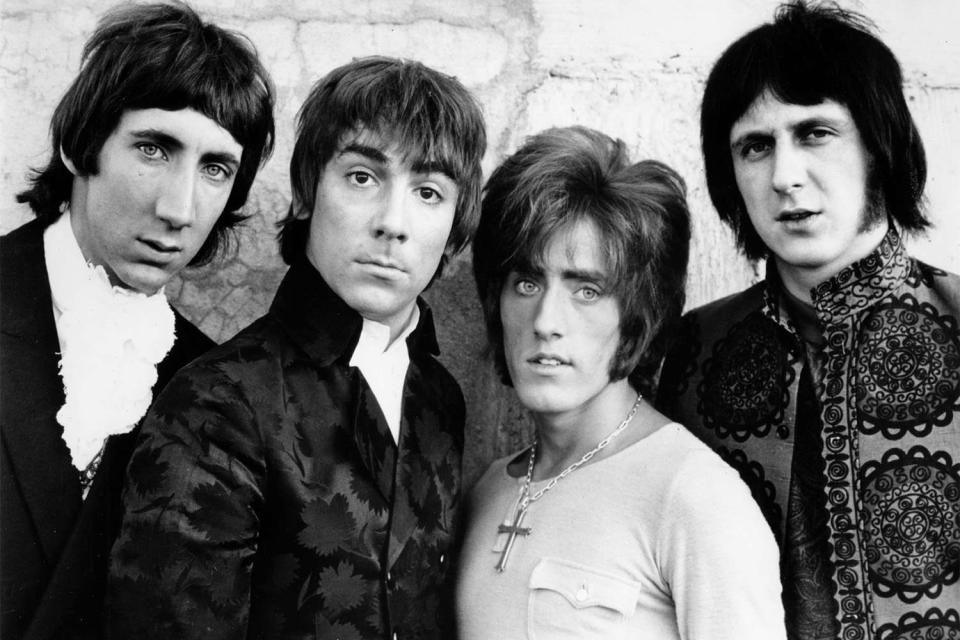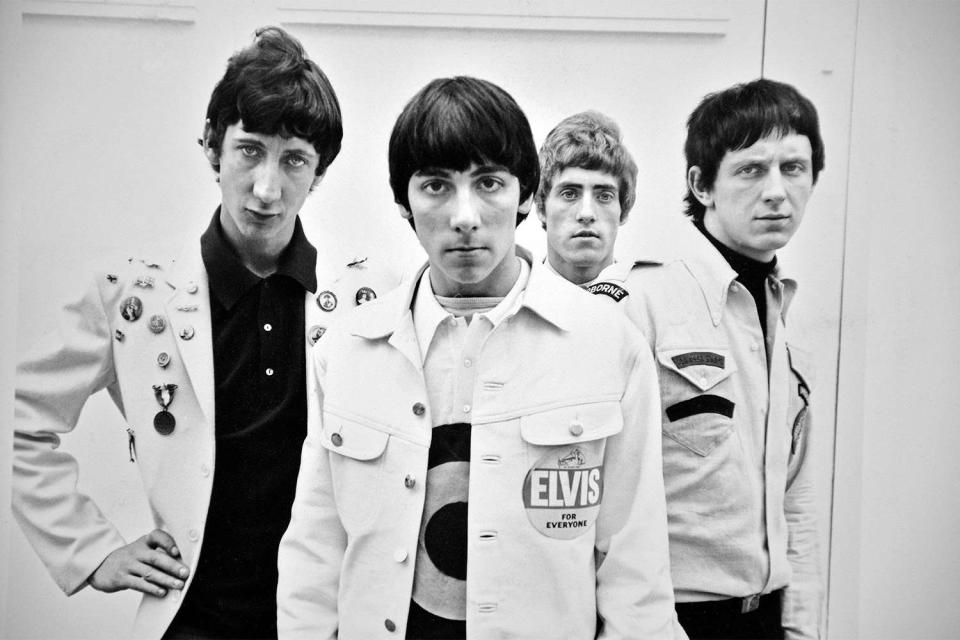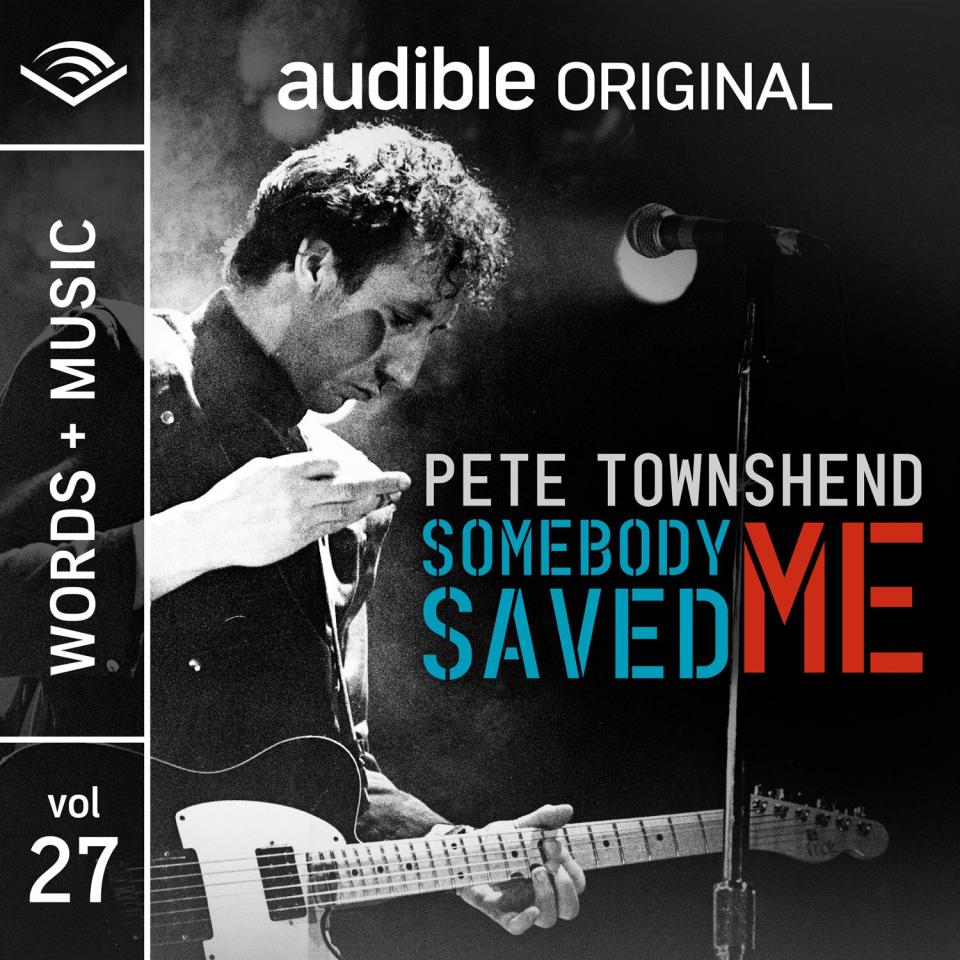The Who's Pete Townshend Talks His Desperate Attempts to Keep Keith Moon Alive and Decades of Sobriety

- Oops!Something went wrong.Please try again later.
- Oops!Something went wrong.Please try again later.
- Oops!Something went wrong.Please try again later.
Terry McGough Pete Townshend
It's no wonder some of the Who's biggest hits tend to run upwards of six minutes or longer — Pete Townshend, the band's legendary guitarist and primary songwriter, has a lot to say.
"I do tend to freewheel," he admits.
Luckily, then, for Townshend, and for his many fans, the rocker was given ample time to gather his thoughts and feelings in the two-hour Audible Original Words + Music title Somebody Saved Me, available for streaming now.
The episode features Townshend, 76, talking and singing his way through the 24-year period between drummer Keith Moon's death in 1978 and the death of bassist John Entwistle in 2002, an era he delves even further into in this week's issue of PEOPLE.
"You have to start your journey and be ready to where it takes you," he says of navigating life's ups and downs. "You can't set out a pathway for yourself and follow it. And if you do, perhaps what you're doing is misreading the way that life works."

Michael Ochs Archives/Getty The Who circa 1966
Among the more difficult of life's curveballs was the loss of Moon, who died of a drug overdose at age 32.
"I tried everything," Townshend says of his desperate efforts to help his friend. "I tried giving him money, I tried starving him of money. I tried sending him into rehab. I tried sending him to a guru weirdo, voodoo doctors."
For more on Pete Townshend, pick up the latest issue of PEOPLE, on newsstands Friday, or subscribe here.
He continues, "I was obsessed with trying to keep Keith alive. It was quite clear that he was on a downward slide, and there was very little I could do. He was a very complicated character."
The late '70s proved a double whammy for the "Let My Love Open the Door" singer and his surviving bandmates. In 1979, just one year after losing Moon, the group was thrust into an unwanted spotlight after a crush outside a Cincinnati Who concert killed 11 people.

The Visualeyes Archive/Redferns The Who in 1965 (L-R: Pete Townshend, Keith Moon, Roger Daltrey and John Entwistle)
The incident occurred outside of the venue at which the band was playing a sold-out show, and they carried on uninformed, only learning of the tragedy after the performance. Townshend has since said that neither he nor his bandmates have ever truly gotten over the incident.
"It's a form of post-traumatic stress, partly because we didn't witness what happened," Townshend says now, over 42 years later. "We're going back to perform there soon for the first time ever since the tragedy, so it's an opportunity to reconnect. But it will open up old wounds. I've realized that there's nothing that you can do to change it. You just have to learn to live with it and try to accept that it happened."
RELATED: The Who Announce New North American Tour: 'We Are Thrilled,' Says Roger Daltrey
In the midst of tragedy, Townshend turned not only to music, but to other vices, namely alcohol. Though he was able to quit drinking for 11 years in 1982, he turned back to the bottle in 1993 before finding sobriety, which he's maintained to this day.
"What's interesting about alcohol, for anybody that regards themselves as an alcoholic, is that they found a medicine that works," he says. "For long periods, I was uncomfortable being in the Who. I wanted to be happily married and have a normal family and life, but it was proving to be impossible. Drinking helped me deal with it. Then one day it stopped working."
Townshend — who has three adult children with ex-wife Karen Astley, and who married musician Rachel Fuller in 2016 — looked for similar relief in cocaine and heroin, but found nothing worked, until sobriety.

"Sobriety is great, but you're living constantly with the fact that you don't have any medicine, and your makeup is that you're ill at ease with the world, ill at ease with life, ill at ease with what you do," he says. "What's so interesting about 12-step programs is this idea that there's a way you can manage one day at a time. It's a great philosophy, and it's helped me."
Now, Townshend is focused on his tour with longtime bandmate Roger Daltrey, which began in April and is called The Who Hits Back.
RELATED: Pete Townshend: I Hated The Who's Rock 'n' Roll Carnage — but It Made Us Famous
"When I was in my 60s, I would say, 'When I hit 70, I'm going to enter a period [called] the rage," he says, explaining it would be an era in which he'd happily decline doing anything he didn't want to do with a hearty, "No, f— off." But when he finally did, Townshend says, nothing changed.
"Maybe if I live to be 85, I'll do a bit of sailing or gardening, whatever it is that old people do. But my health is really good, so it's likely I'll die being hit on the head by something from a sailboat."

